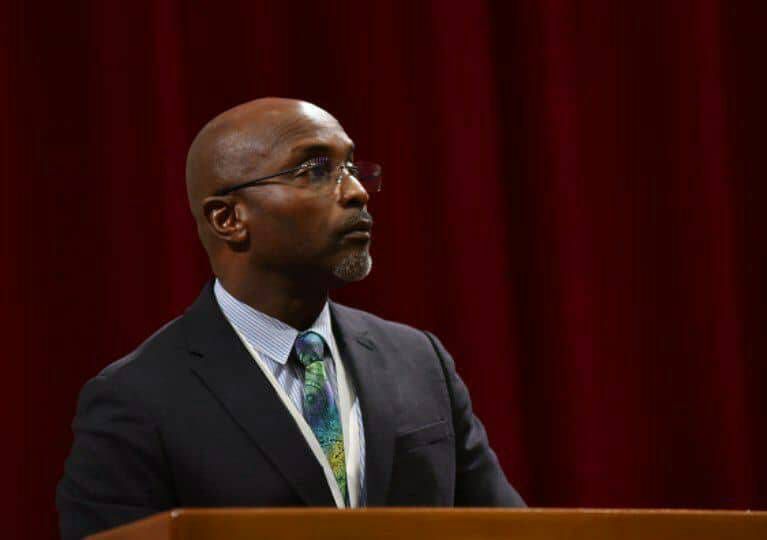18th March 2024
Ladies and gentlemen, esteemed guests, and participants,
I am honoured and truly grateful to be able to bring you greetings today on behalf of the Caribbean Telecommunications Union (CTU). It is great to be in beautiful Havanna with such esteemed delegates from around the world.
The CTU is a specialised institution of the Caribbean Community or CARCIOM. It is an intergovernmental institution focusing on harmonisation of information and communication technology policy within the member states of CARICOM. There are 20 countries that are members or associate members of the CTU and this, I am pleased to say, includes Cuba. CTU Member States collaborate with Cuba in international ICT policy development processes, in particular in organisations such as the International Telecommunication Union (ITU) where both Cuba and The Bahamas sit on the ITU Council, which is the governing body of the ITU. Cuba may also participate in the meetings of the General Conference of Ministers and the Executive Council where there is the opportunity to discuss and agree on common policies related to the promotion of digital cooperation at the regional level. The CTU is also at the disposal of Cuba in relation to the development of national ICT policies including matters relating to the development of digital literacy and skills, robust and inclusive digital infrastructure, effective spectrum management, online public services, cybersecurity and other key components of a digital society.
At the heart of this digital society lies the seamless integration of technology into the fabric of everyday life, transforming the way we interact, communicate, work, and govern. It is a vision of a society where information flows freely, where connectivity is fast, secure and reliable, and where innovation thrives, particularly amongst our young people.
A digital society empowers individuals by providing access to information and opportunities regardless of geographical or socioeconomic barriers. It enhances education through digital learning platforms, facilitates access to healthcare through telemedicine, and expands economic opportunities through digital entrepreneurship and remote work.
Moreover, a digital society promotes transparency and efficiency in governance, fostering citizen engagement and participation. It enables governments to deliver services more effectively, respond swiftly to crises, and make data-driven decisions that benefit the public good.
Furthermore, the digital transformation of industries enhances productivity, drives innovation, and creates new avenues for economic growth. From smart cities to smart farms, from fintech to renewable energy, there are many possibilities in a digitally connected world.
It is imperative, however, that as we embark on this journey towards a digital society, that we also address challenges such as digital inequality, privacy concerns, cybersecurity threats, and ethical considerations surrounding emerging technologies, including artificial intelligence. I will speak a bit more on AI later this week. We must ensure that no one is left behind and that we do not deepen societal inequalities. On that note, Cuba has been host to Accessible Americas, which is the ITU’s main regional platform focused on ICT Accessibility to ensure the digital inclusion and the empowerment of all people, regardless of age, gender, ability or location. Accessible Americas aims to strengthen the knowledge of the ITU members on policy and strategies of digital inclusion and the exchange of good practices to ensure accessibility of telecommunication and ICT products and services for persons with disabilities, girls, women, indigenous people, older persons, youth and children, in order to ensure that all will benefit from ICT opportunities.
In this regard, the CTU has been advocating for the strengthening of global cooperation through mechanisms such as the Digital Public Goods Alliance which seeks to unlock the potential of open-source technologies for a more equitable world. Cuba has been a leader in free and open-source software and its experience can be a tremendous benefit to other member states in the Caribbean.
At the regional level, the CTU has been actively participating in the United Nations process towards the development of a Global Digital Compact which is being developed for consideration at the Summit of the Future in September of this year.
The compact calls for a commitment to “strengthening digital cooperation, harnessing the potential of science, technology and innovation for the benefit of all humanity. It calls for the acceleration of the use of science and digital technologies to help us to realize the 2030 Agenda, including through the transfer of technology on mutually agreed terms to help close the digital and innovation divide.
It also calls for the implementation of shared commitments for an open, free, secure, inclusive and human-centred digital future and for new technologies to be shaped in ways that are human-centred, reflect universal human values and protect the planet.
Ladies and gentlemen, in closing, as we meet here at this 19th edition of Informatica, let us keep these principles in the forefront of our minds. Let us work together for a digital society that is more inclusive and equitable and that provides opportunities for our citizens.
I wish you a very productive week.
I thank you for your attention.


